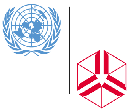|
COMMENT
Let's decide what kind of world we want
By Ramesh Thakur
The big story of the
war seems to be that Saddam Hussein's regime did not possess usable
weapons of mass destruction, and thus did not pose a threat to regional,
U.S. or world security of an urgency and gravity that required instant
military action to topple him.
Saddam was a thug. No tears will be shed at his fall. We all welcome the
liberation of the Iraqi people from tyranny. But that is a collateral
benefit amid the carnage that the principles and institutions of world
order have suffered. It is difficult to be joyous at the descent from the
ideal of a world based on the rule of law to the law of the jungle -
though the lion will welcome the change.
Victory in Iraq comes at the price of relegitimizing wars of choice as an
instrument of state policy - something that we have struggled against for
centuries. It will lead to more determined efforts to acquire weapons of
mass destruction by countries and perhaps terrorist organizations, since
nothing else is capable of deterring the U.S. juggernaut.
Is the world ready to accept the doctrine that the United States decides
if a country's leader is to be toppled?
To ask this question is not to deny that present institutions and systems
are often out of date and incapable of meeting today's real challenges.
Such challenges include widespread poverty, obstacles to economic
development and the spread of weapons of mass destruction. But there is
also the growing disparity between U.S. power and that of all others, and
the challenge that this poses to the Westphalian fiction of sovereign
states equal in status and legitimacy.
The solution lies in amending existing rules and institutions. Otherwise,
in the resulting authority vacuum, anarchy will prevail. If regime change
is to be a legitimate goal, let us argue for that, agree on what
constitutes legitimate statehood deserving of sovereign rights, such as
market democracy, and amend or replace the UN Charter accordingly.
Saddam Hussein is insignificant. The real issue is: What sort of world do
we wish to live in, who do we wish to be ruled by, and do we want to live
by rules and laws or by the force of arms?
The costs in the prelude to the war in Iraq included fissures in the three
great institutions of peace and order since 1945, the United Nations, NATO
and the European Union. How will the damage be repaired, or what will take
their place?
If military victory means legitimacy, then might is right. But it begs the
question: Will others politely accept the new U.S. imperial order, or will
they begin to arm and align themselves so as not to become tomorrow's
Iraq?
Ramesh Thakur
is UNU Vice Rector and director of the Peace and Governance Programme.
This commentary first appeared in the April 17 edition of the International
Herald Tribune. These are his personal views.
 Home
Home
|

